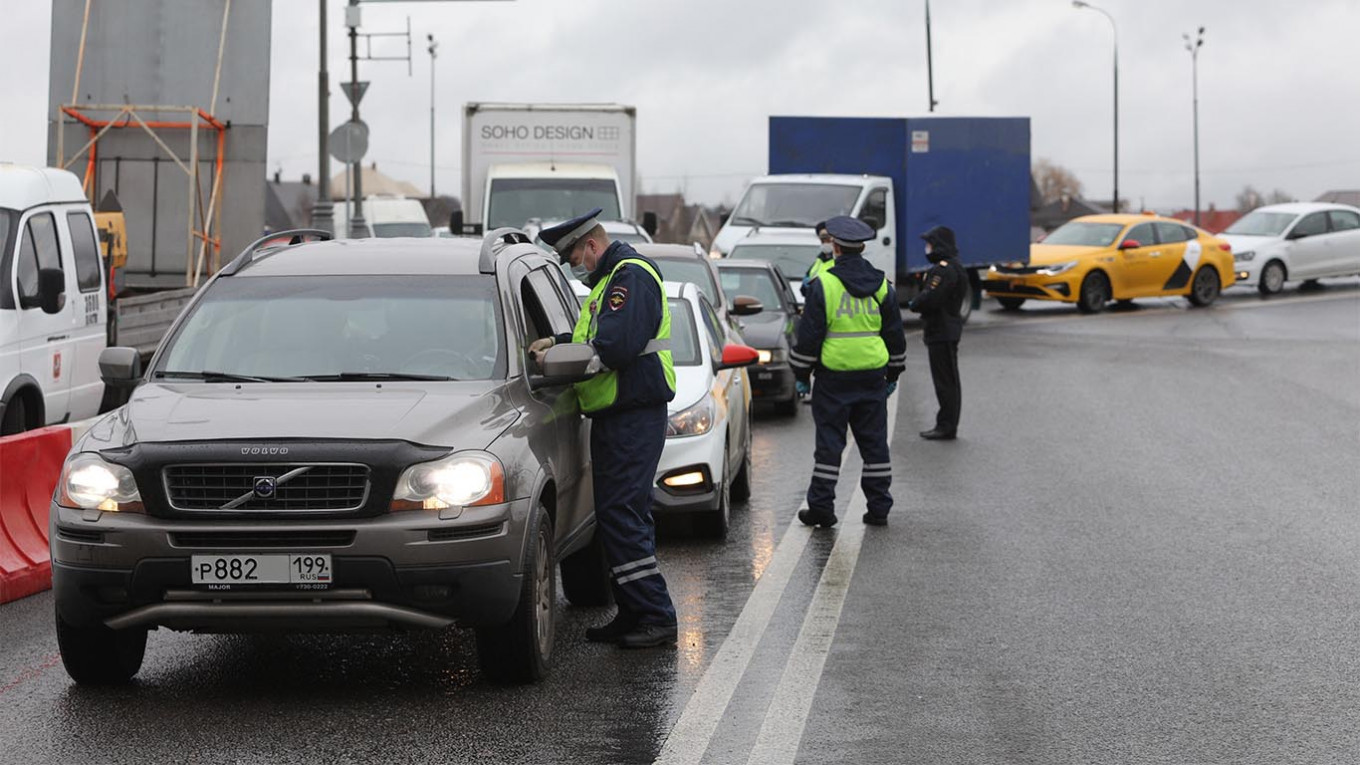
Muscovites complained of large queues outside metro stations and severe traffic jams on the first day of the city’s mandatory digital lockdown passes, prompting concern that the coronavirus could spread further.
Moscow’s digital pass system, created to monitor and enforce residents’ movements around the city during its coronavirus lockdown, was first introduced on Monday and became mandatory at midnight Wednesday. Passes are required for all trips by public and personal transport, including taxis, and residents face steep fines for violations.
Photos posted on social media showed large, closely packed crowds outside the city’s metro stations during rush hour Wednesday morning as people waited to have their passes checked. Some wrote that wait times were as long as 30-40 minutes.
“Those who haven’t gotten sick yet will definitely get sick now,” one person wrote on Twitter.
Traffic data also showed traffic jams forming at nearly all entryways to the city as Moscow traffic police checked every car for the passes.
“Many people in Moscow are still going to their jobs because they perform essential work,” Rachel Denber, deputy Europe and Central Asia director at Human Rights Watch, told The Moscow Times. “Yes, the authorities need to enforce social distancing. It needs to do so in a way that’s proportionate. But the new QR code system, combined with this kind of enforcement, is handing these people, who are already putting themselves on the line, unnecessary, potentially hazardous, burden.”
“We’re not able to comment on the actions of the police,” the Moscow metro’s press service said when asked about the large queues.
Mayor Sergei Sobyanin later said that the city will need to develop an automated system for checking metro passengers’ passes.
On Monday, city authorities said they had rejected 900,000 applications for the passes due to residents entering incorrect or inaccurate information.
Moscow has emerged as the epicenter of Russia’s coronavirus outbreak, with 13,002 of Russia’s 21,102 coronavirus cases as of Tuesday. Experts have warned that the Russian capital is at risk of an outbreak on par with that of New York City, the epicenter of the pandemic in the United States.
